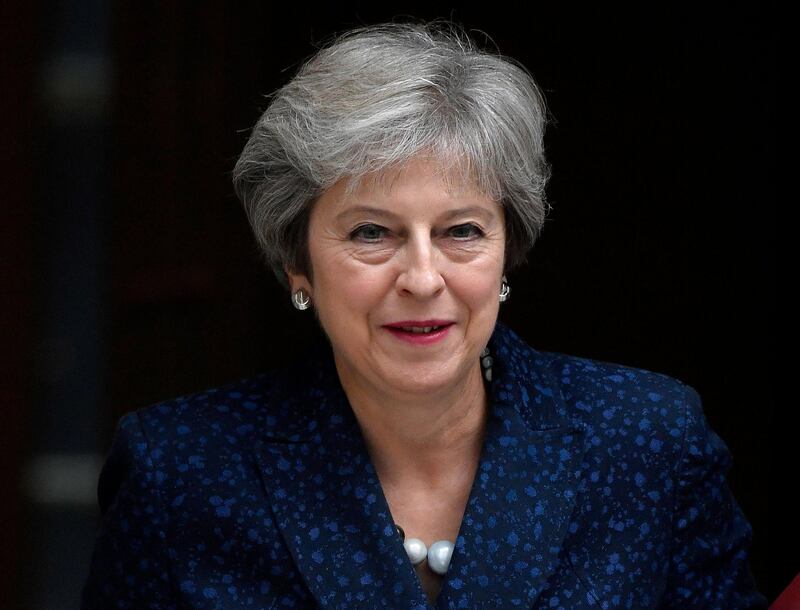Just over two years ago, the UK held a referendum on the matter of its continued membership of European Union. What it delivered was hardly a landslide result − 51.89 per cent of voters cast their ballots to leave, while 48.11 per cent opted to remain.
Deep fissures in society were revealed and the pound immediately slumped to a 31-year low against the dollar. The day after the June referendum, the then prime minister David Cameron resigned and a toxic leadership battle within the ruling Conservative party ensued, from which Theresa May emerged as the eventual victor.
Despite having previously campaigned to remain, Mrs May made it clear that the UK would, indeed, be leaving the EU.
However, the power struggles within her party have never really stopped.
Now, after one snap election, constant sniping from her own MPs and with just six months to go before Britain formally walks away from one of the world’s largest trading blocs, hardline Brexiteers are still locked in ideological conflict with their more moderate colleagues, Mrs May is still under fire, and Britain’s future is more unclear than ever before.
In a recent BBC interview, Mrs May insisted that the only alternative to her Chequers plan – which maintains close ties with the EU – is to leave with no trade deal whatsoever and expressed her irritation with ongoing speculation about her position as prime minister.
For many, this constant infighting and jockeying for position is wearing extremely thin. Brexit voters just want to get the job done and some dedicated remainers are calling for a second referendum in the hope of overturning the previous result, but the majority appear to consider that Brexit is inevitable and simply want to secure the best possible deal going forward.
However, there is no clear idea what the future holds and the managing director of the International Monetary Fund Christine Lagarde has stated that "the range of issues that remains to be addressed is daunting".
Now there is growing support for a People’s Vote to be held on the final agreement. It would certainly seem that maintaining strong trading links would be in the best interests of both the EU and the UK and, with so much uncertainty, it is hardly surprising that the British public want to know where their country is headed.
And when committed Brexiteers such as Michael Gove are calling for the Chequers deal to be pushed through, regardless of their own reservations, it is probably a sign that two years of instability must now come to an end.
After all, the current situation is a long way from the “strong and stable leadership” Mrs May promised the British people.





